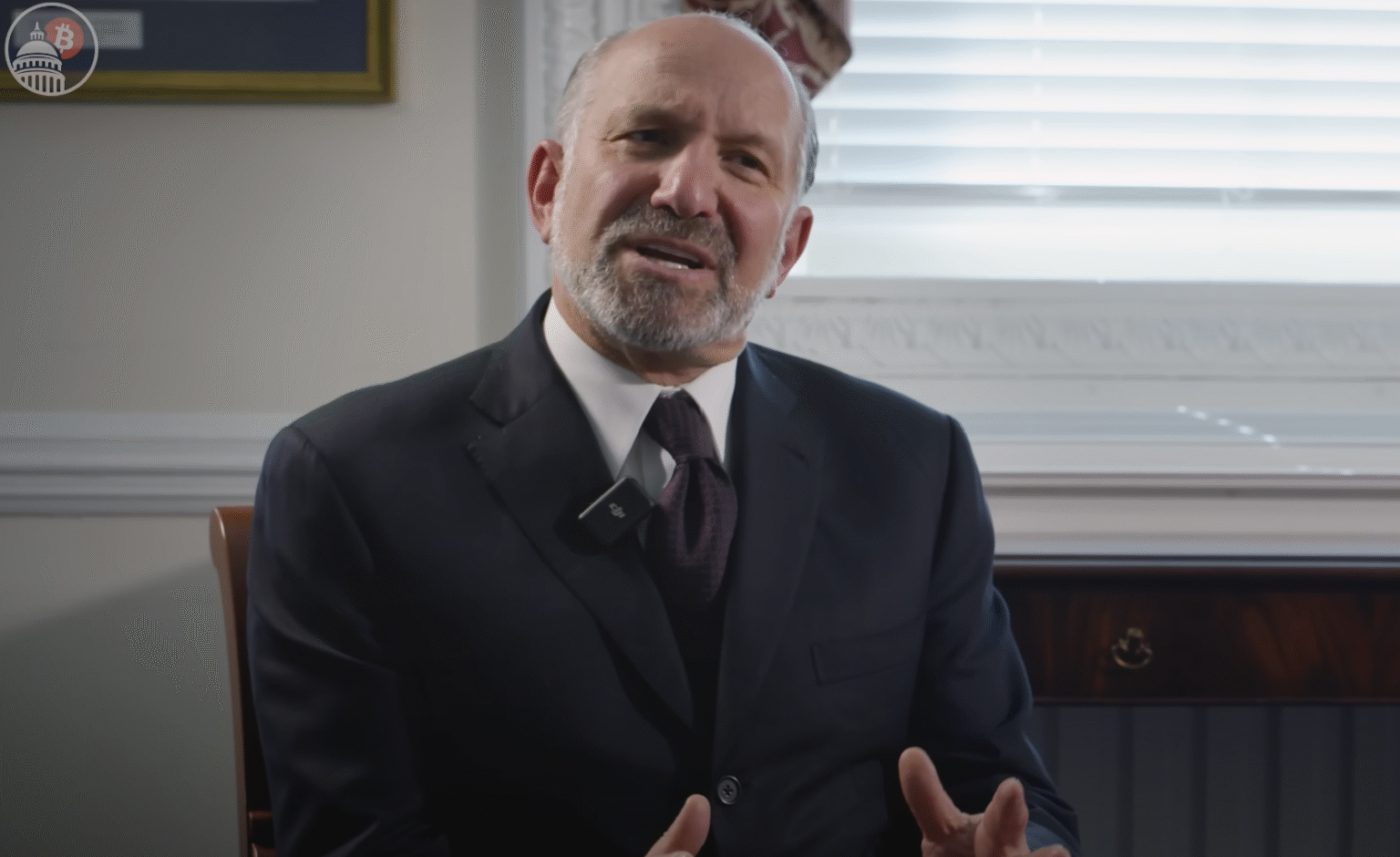In the ever-evolving world of cryptocurrency, recent developments in U.S. policy have sparked intrigue and excitement within the Bitcoin community. With the return of President Donald Trump to the White House, a series of Bitcoin-focused policy shifts have emerged, underscoring the asset’s growing importance in national strategy. Commerce Secretary Howard Lutnick has been at the forefront, drawing parallels between Bitcoin and gold, with a strong assertion of federal support. This shift represents a significant departure from previous administrations’ approaches to digital currencies, setting a new tone for Bitcoin’s role in the U.S. economy.
Bitcoin: The New Era of Digital Gold
Under the current administration, Bitcoin is being embraced as a strategic asset akin to gold. Lutnick’s conversation with Bitcoin Magazine’s Frank Corva revealed a reimagined regulatory environment where Bitcoin is recognized not as a speculative tool but as a valuable commodity woven into the fabric of American trade, energy, and investment agendas. He reflected on the Biden administration’s critical stance, where Bitcoin discussions were often cloaked with caution and skepticism. Now, that era is decisively over, marking a bold new beginning for cryptocurrency in the U.S.
The Strategic Vision for Bitcoin
Lutnick’s depiction of President Trump as a staunch Bitcoin advocate illustrates this administration’s commitment to integrating Bitcoin into the national economic strategy. Alongside “Crypto Czar” David Sacks, Lutnick praised the rapid establishment of a Bitcoin strategic reserve, describing it as a remarkable government achievement. Although details of the reserves remain under wraps, the focus has shifted to framing Bitcoin as a strategic commodity. Lutnick emphasized its scarcity with only 21 million Bitcoins available, likening this rarity to its intrinsic value.
Bitcoin and National Economics
The Commerce Department is actively exploring the integration of Bitcoin into national economic metrics, potentially positioning it alongside gold in the nation’s international investment stats. Lutnick advocated for such inclusion, signaling a shift in how national wealth and trade balance calculations might be approached. The department’s broader initiatives aim to revamp economic measures to differentiate actual production from non-trade government expenditures.
Investment and Infrastructure Development
A significant component of the new strategy is the Commerce Department’s Investment Accelerator, designed to facilitate large capital projects. This initiative offers comprehensive support for investments exceeding $1 billion, including white-glove service for Bitcoin mining projects. Lutnick’s vision connects this to on-shoring energy resources, particularly leveraging stranded hydro and flare-gas assets to propel Bitcoin mining in the U.S., thereby reducing reliance on grid electricity and optimizing cost efficiency.
The Impact on Bitcoin Decentralization
Lutnick addressed concerns regarding Bitcoin’s decentralization, asserting that the U.S. remains the world’s premier business environment, and regulatory clarity will likely attract miners globally, reinforcing the nation’s position as a cryptocurrency hub. While Bitcoin shares priority with other significant policy initiatives, the administration has already delivered on two major crypto promises, with more developments anticipated.
Finally, the administration’s message is unmistakable: Bitcoin is akin to digital gold, the U.S. is committed to mining and retaining it domestically, and federal policies are being adapted to support this new paradigm.
FAQs
How does Bitcoin’s status as a strategic commodity affect its value?
The recognition of Bitcoin as a strategic commodity by the U.S. government could enhance its perceived value, similar to gold, fostering increased investor confidence and potentially stabilizing its market position.
What are the implications of U.S. policy shifts on global Bitcoin mining?
By providing regulatory clarity and supporting infrastructure development, the U.S. could become a preferred hub for Bitcoin mining, influencing global mining trends and reinforcing its position in the cryptocurrency ecosystem.
Will this U.S. policy change impact Bitcoin’s price significantly?
While Bitcoin’s price is influenced by various factors, strategic government backing can boost investor sentiment and drive demand, potentially impacting its price positively in the long term.

